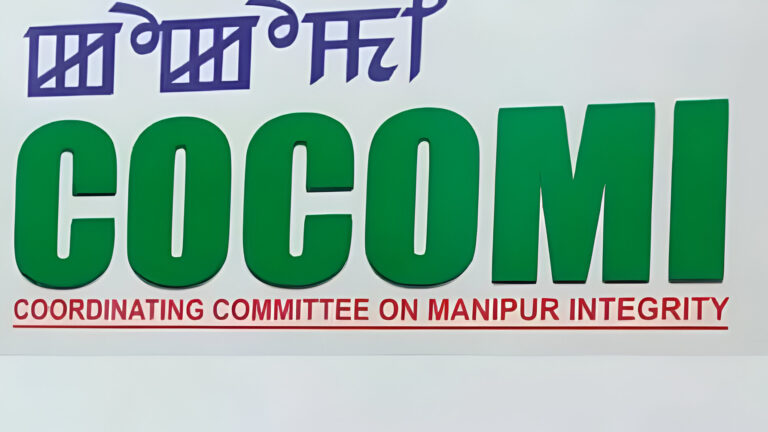Manipur Police Arrest Active KCP (PWG) Cadre, Seize Arms and Ammunition
Summary
In a decisive operation, Manipur Police arrested an active member of the proscribed Kangleipak Communist Party (People’s War Group) [KCP (PWG)] on December 21, 2024. The suspect was apprehended in Imphal West, with authorities recovering a 9mm pistol, ammunition, and other items. This operation highlights the continued efforts to curb insurgency in the state. In a separate case, security forces also seized weapons and detained suspects in Churachandpur. These actions emphasize the importance of proactive law enforcement in addressing insurgency threats.
The Full Story
Introduction
Manipur, nestled in the northeastern corner of India, is as beautiful as it is turbulent. For decades, this state has been a battleground for insurgent activities, creating ripples of unrest and insecurity. Among the many insurgent groups operating in the region, the Kangleipak Communist Party (People’s War Group) [KCP (PWG)] has carved out a particularly notorious reputation.
The recent arrest of an active KCP (PWG) cadre showcases the relentless efforts of law enforcement to dismantle these insurgent networks. So, what went down during this high-stakes operation, and why does it matter so much? Let’s dive into the details.
The Arrest That Made Headlines
On December 21, 2024, Manipur Police executed a well-coordinated operation near Zomi Villa Gate in Imphal West. Acting on solid intelligence, they arrested 29-year-old Tularanjan Ingudam Meitei. This wasn’t just a routine arrest—it was a strategic strike against a militant network that thrives on disrupting peace.
What was seized?
- A 9mm pistol along with its magazine.
- A mobile handset, potentially holding crucial data.
- A two-wheeler with no registration number, commonly used for covert operations.
Each of these items is more than just evidence; they’re pieces of a larger puzzle that law enforcement is piecing together.
The Broader Crackdown in Churachandpur
This wasn’t an isolated operation. Around the same time, security forces swooped into Lamzang Village, Churachandpur District. Here, two individuals—Jangneu Haokip (33) and Lililn Haokip (42)—were arrested. The items seized during this raid included:
- A 9mm Carbine Machine Gun with a magazine.
- A pistol with its magazine.
- 123 rounds of live ammunition.
- A four-wheeler, likely used for logistical support.
- Two mobile phones.
These arrests further illustrate the sprawling network of insurgency that stretches across Manipur. Each operation weakens the foundation of these groups, sending a clear message: law enforcement is watching, and they’re not backing down.
Understanding the KCP (PWG)
The KCP (PWG) isn’t just a group—it’s a symbol of resistance for some and a source of fear for many. Formed with the aim of establishing an independent socialist state, this faction has turned to illegal activities to fund its operations. From extortion to armed attacks, their tactics have left a trail of chaos.
But why do groups like KCP (PWG) persist? The answer lies in a mix of socio-political discontent, economic disparity, and the rugged geography of Manipur, which provides a natural shield for insurgents.
The Ripple Effects of Insurgency
Insurgency doesn’t just hurt those directly involved—it impacts everyone. Here’s how:
- Economic Losses: Frequent strikes and blockades disrupt daily life and commerce.
- Fear Factor: Constant threats create an atmosphere of unease, stifling community growth.
- Delayed Development: Infrastructure projects often face delays due to insurgent interference.
- Lost Opportunities: Young people, instead of dreaming big, often get pulled into the insurgency vortex.
Manipur has so much potential, yet these challenges keep holding it back. Imagine trying to build a house while someone keeps pulling the bricks out—this is the reality for the state.
How Law Enforcement Fights Back
Manipur Police and other security agencies are constantly evolving their strategies to combat insurgency. Here’s how they’re making a difference:
- Precise Intelligence: Operations like the recent arrests are the result of thorough planning and accurate intel.
- Community Collaboration: By involving local communities, law enforcement builds trust and gathers crucial information.
- Enhanced Training: Police forces are better equipped and trained to handle insurgent threats now more than ever.
These aren’t just one-off measures—they’re part of a long-term strategy to bring lasting peace to Manipur.
The Role of Citizens
Let’s not forget the role of ordinary people in this fight. It’s like a community garden: everyone needs to pitch in for it to thrive. Locals can play a massive role by reporting suspicious activities and discouraging young people from joining such groups.
What Lies Ahead?
The recent arrests and seizures are a step forward, but there’s still a long way to go. Dismantling insurgency networks requires persistence, innovation, and a lot of courage. The question is, how can we turn these small victories into a larger wave of peace? The answer lies in sustained efforts—both by the government and the people of Manipur.
FAQs
- Why is the KCP (PWG) considered a threat? The KCP (PWG) is involved in illegal activities like extortion and armed attacks, disrupting peace and stability in Manipur.
- What was significant about the recent arrests? The arrest of an active cadre and seizure of arms indicate proactive measures by law enforcement to dismantle insurgent networks.
- How do insurgent activities impact Manipur’s economy? Frequent strikes and blockades hinder trade, delay projects, and deter investors, leading to significant economic losses.
- What can locals do to combat insurgency? Locals can report suspicious activities, engage in community-building programs, and offer alternatives for youth to avoid insurgent influence.
- What challenges do security forces face in Manipur? The rugged terrain, cross-border dynamics, and occasional local support for insurgents make counter-insurgency efforts challenging.


